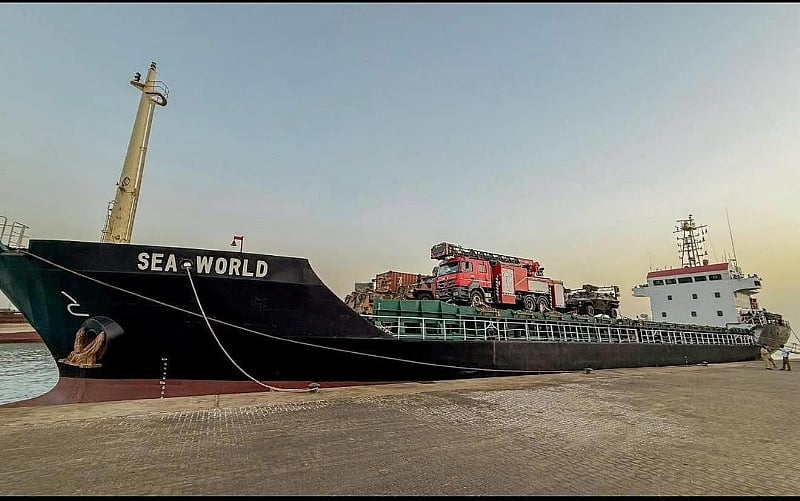In July 2025, Puntland authorities intercepted a foreign ship off the coast of northeastern Somalia, sparking concern and debate across the country. According to Puntland officials, the vessel carried military equipment whose purpose, origin, and destination raised serious questions. Although details remain limited, the incident reflects deeper political and security challenges in Somalia, especially regarding the relationship between federal and regional authorities.
1. Fear and the Right to Question
Puntland’s reaction to the captured ship was driven by a genuine concern: the fear that the weapons might be used against them. This fear is not baseless. In a context where political power struggles are frequent and where past tensions between federal and regional governments have occasionally turned violent, the arrival of unknown arms naturally provokes suspicion.
Puntland’s decision to seize the ship and demand answers was not only a response to fear—it was an exercise of its right to ensure the safety of its territory and people. The Somali constitution recognizes a degree of autonomy for federal member states, and Puntland, being one of the oldest and most stable regional governments, has both the duty and authority to question any activity that might endanger its security.
This incident also highlights the need for transparent communication between Mogadishu and regional governments. In a healthy federal system, the transfer of military supplies—especially via secretive routes—should not occur without consultation and coordination. When trust is weak, secrecy breeds fear.
2. Fragility, Silence, and the Loss of Trust
Perhaps more troubling than the incident itself was the silence that followed. For nearly five days, the federal government of Somalia made no clear statement regarding the intercepted vessel. This delay left a vacuum filled by rumors, suspicions, and political accusations. The silence was interpreted by many Somalis as either confusion or concealment, both of which reveal deeper institutional fragility.
Somalia’s long history of civil conflict, foreign interventions, and political fragmentation has eroded the trust between regions, between citizens and leaders, and even between branches of government. Each actor views the other with caution, if not outright suspicion. This lack of trust is now a defining feature of Somali politics—and it paralyzes the ability to act quickly and transparently in moments of crisis.
The Puntland ship incident is therefore more than a local security matter. It is a mirror reflecting a divided state, where fear replaces cooperation, where constitutional rights are contested through actions rather than dialogue, and where silence is often the only response in moments that require clarity.
The intercepted ship in Puntland exposed the fragile foundations of Somalia’s federal arrangement. Puntland’s fear of potential harm and its right to question the presence of weapons must be understood within the broader context of weak institutions and political mistrust. The delay in communication and the absence of national consensus speak volumes about how far Somalia still has to go in building a state where all regions feel safe, heard, and respected.
For lasting peace, Somalia must prioritize transparency, communication, and federal harmony. Until then, incidents like this will continue to unsettle an already fragile nation.
By Abdirahman Mumin, Academic and Writer


